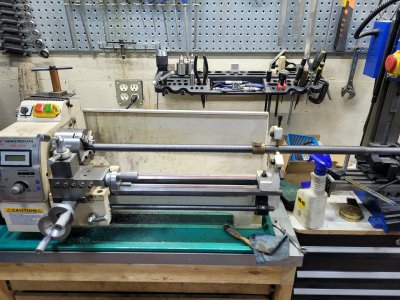trlvn
Ultra Member
The threads on the lead screw don't look bad in your picture. That only leaves the threads in the nut as the problem.the lead screw/table nut and all is piss wobbly slack (the nut will almost slide over the lead screw).
Is it possible that the factory screwed up machining the threads in the nut casting? Or that it was a bad casting--maybe maybe a sloppy core or voids or whatever?
The King page does say that there is a 2 year limited warranty. I would hope that King will put things right.
Craig

